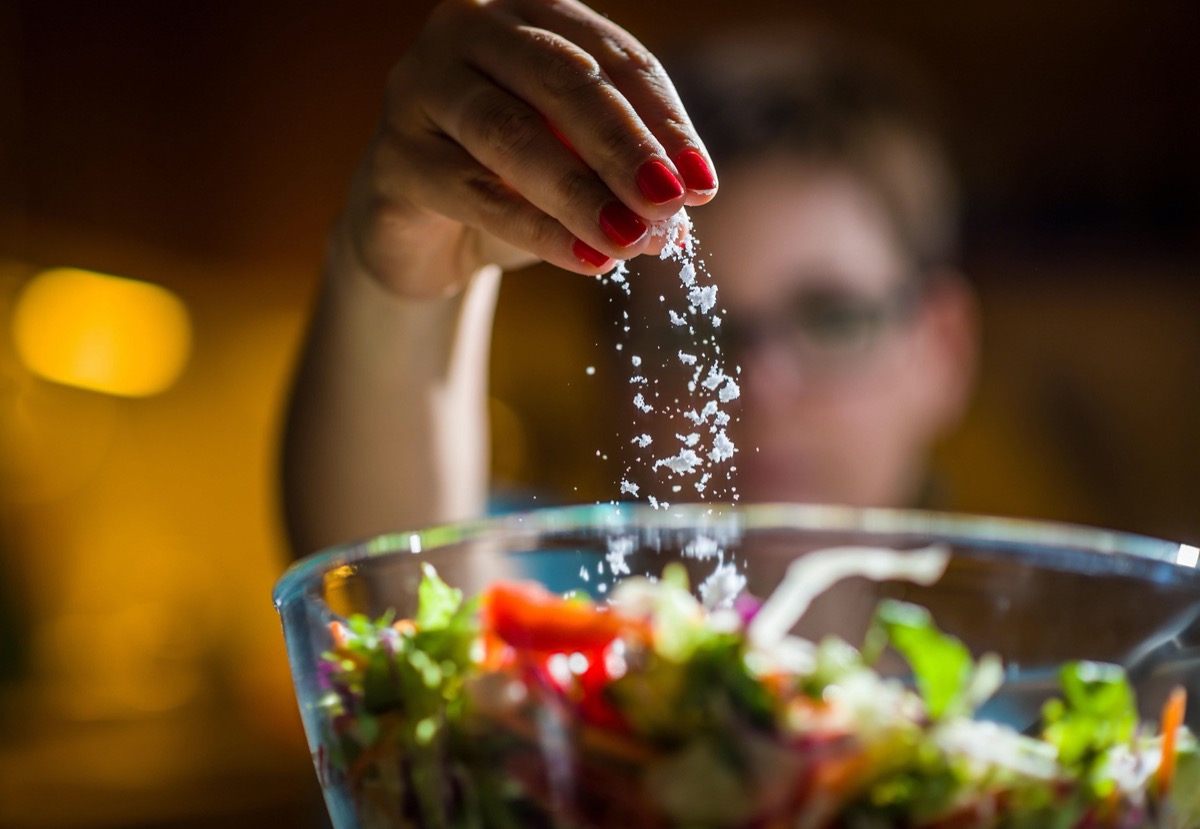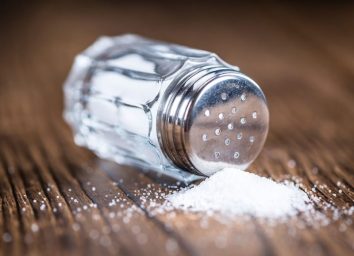The Surprising Effect Reducing Sodium May Have on Your Blood Sugar, New Study Says

You know too much salt is not great for your heart, and you know too much sugar isn't good overall. Now, a new study has revealed how eating too much sodium from salt may actually impact your blood sugar in a way you most likely never realized.
Susan C. Weller and Benjamin N. Vickers are researchers at the University of Texas's Department of Preventive Medicine and Population Health. For a new study, the pair started by pointing out that past data suggests half of all diabetes patients get a little too loose with the lifestyle changes they learn after they've finished working with nutrition professionals and then subsequently step outside of the clinical setting. In other words, it's easier to stay disciplined with healthy diet and nutrition habits whenever you're regularly tracking those with a professional.
So, the research team set out to identify lifestyle habits diabetes patients can reasonably adopt to help maintain good control of their blood sugars, even after they wrap up their course of medical counseling. Using data from the National Health and Nutrition Examination Survey, the researchers evaluated habits as reported by participants 50 years of age and up, who had been diagnosed with diabetes at least one year prior.
Interestingly, "self-monitoring of blood glucose, weight loss, and physical activity were not significantly associated with glycemic control," the researchers report. (We suggest that is not to say that exercise doesn't have a significant impact on your health!) Additionally, the researchers report, the factors that were associated with poor blood sugar control were non-adherence to taking medications, following a "diabetic diet" and "changing eating habits for weight loss." The way these findings are reported, it seems perhaps these goals were just too general to keep participants inspired in sticking to them.
However, the scientists report, the following three diet changes had the biggest impact on keeping blood sugars at a healthy level: consuming low-calorie foods, eating less fat, and reducing sodium. These three variables "were significantly associated with good glycemic control," the researchers state. (Keeping up their diabetes education and consultation also contributed to participants' ability to maintain healthy blood sugar levels, the researchers said.)
It's commonly known that reducing fat and calorie intakes can help many individuals lessen their risk of endocrinological disorders, like diabetes. But what's the connection with sodium? A 2017 Medical News Today article provided the following explanation, based on a study that was new at the time. They stated that "sodium impacts insulin resistance, but also because excess salt can lead to hypertension and gaining excess weight." And, as has been shown for years, hypertension (high blood pressure) but especially being overweight put individuals at higher risk for diabetes.
It's a compelling reminder that when it comes to bringing out the flavor, just a little salt can go a long way. That's especially true in the season of fresh foods, which deliver so much flavor by their ripe-picked nature.
Sign up for the Eat This, Not That! newsletter for the nutrition news you need, and don't miss The Startling New Side Effect of High Blood Pressure, Says Study. Then keep reading:
- The #1 Worst Order at Costco's Food Court
- One Major Side Effect Eating Sugar Has on Your Heart, According To Experts
- Eating This for Dinner Increases Your Heart Disease Risk, New Study Says
- One Major Side Effect of Drinking From a Plastic Bottle, Says Science
- The One Grocery List You Need To Eat Healthy All Week, Nutrition Experts Say








